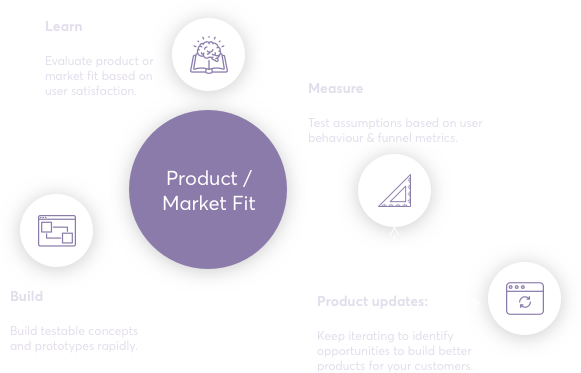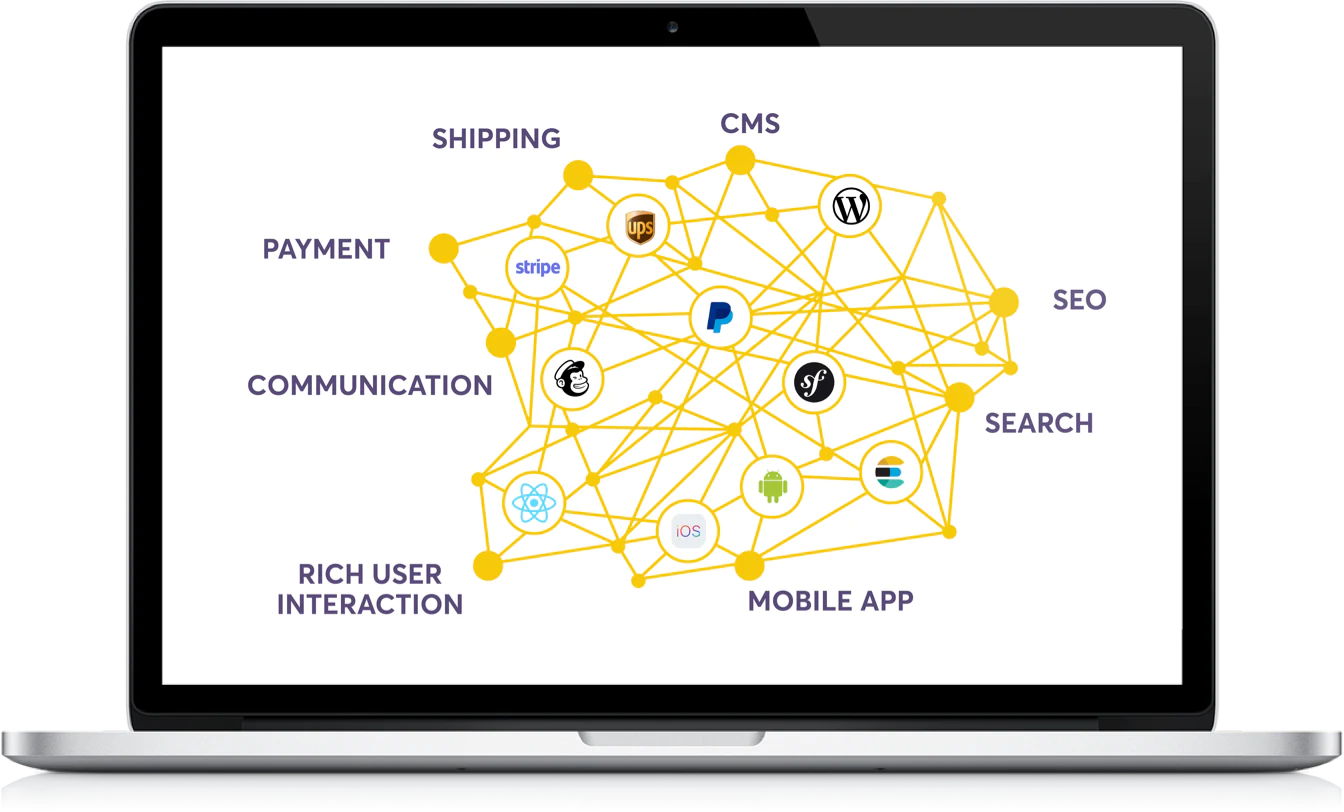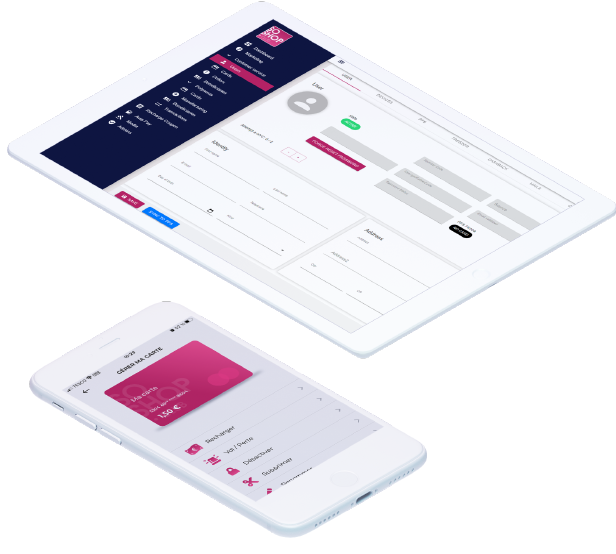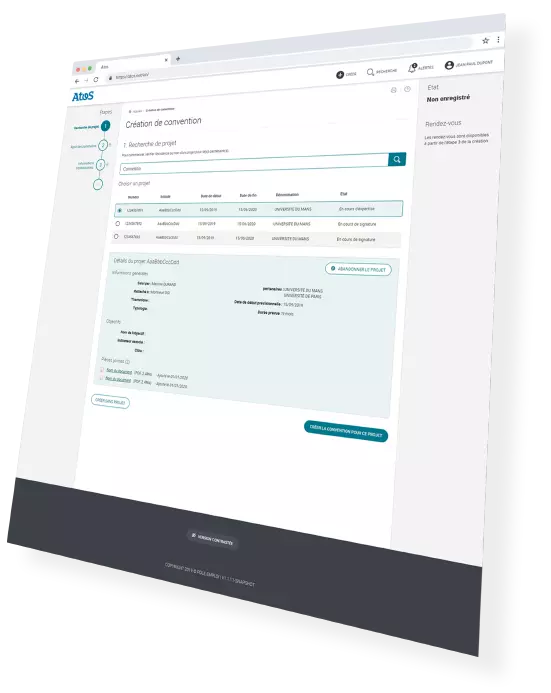Challenges for marketplace entrepreneurs
Nine out of ten marketplace startups fail, mostly due to lack of:
- Product/market fit
- Sufficient budget planning
- Digital business experience
- Effective user strategies
- Technical expertise
Pitfalls of turnkey (SaaS) solutions:
- Generic user experience
- Inflexible user flows
- Low scalability
- Limited revenue options
- Limited features
Why custom marketplace development?
Generic templates, offered by online marketplace builders, may not support your business goals or meet your users' needs, which can sink your marketplace. Here are four good reasons for a custom solution:

Better user customisation
Custom marketplace software allows you to create functionalities, features and user flows that best serve your users.

Identify business opportunities
A custom development process makes it easier to identify growth opportunities based on user behaviour.

Align technology & business
An experienced developer will suggest the right technology to give your marketplace concept the best chance at success.

Scale your business
Generic templates can work for quick small-scale experiments, but provide a poor foundation for later growth.
Popular marketplace features
we have built for our clients since 2012.
Great online marketplace design allows you to grow a thriving buyer/seller community, promote diverse products, and drive sustainable revenue streams. The following features can help you achieve those goals.
The proliferation of online marketplaces has meant stiff competition for quality sellers. Activate sellers at scale by streamlining and automating their access to your platform.
Well-designed business pages for sellers can drive traffic to your marketplace, increase seller revenue, and help buyers discover products or services.
Helping buyers to interact with your marketplace in a low-friction, intuitive manner is critical to high platform adoption and engagement rates.
The quality of your product or service listings can make or break your marketplace reputation. A well-designed and managed listing structure will attract sellers that drive sales.
Service industries are the next big wave of marketplace disruption. Service marketplace listings should help service providers showcase their offerings so that clients can find them easily.
Users should be able to quickly find the right product or service. This requires the marriage of a seamless user interface with complex under-the-hood technical flows.
Your service marketplace needs to efficiently manage service provider availability and allow clients to book services when and where they need them.
Managing the flow of funds between buyers, sellers and platforms is a core function of an online marketplace. Specialised payment service providers can be customised to support your business model.
Investing in a data-driven category structure can drive (the right) traffic, increase seller retention, and convert more product searches into sales.
Offering multiple currencies, languages or cross-border tax calculations can help expand your marketplace footprint to new markets.
SEO is an important source of traffic for marketplaces. Ensuring that your marketplace, sellers, products or services rank high in search engine results will attract more customers.
Shopping carts allow marketplace buyers to purchase products from multiple sellers in one transaction. This has major implications for customer satisfaction, conversion rates, and ultimately revenue.
Promotions are a great way to drive traffic and conversions. The caveat is that they need to be aligned with what your sellers offer and what your buyers want.
Your order management system is crucial to your marketplace’s performance. Streamlining and automating the process can minimise errors, reduce wastage and increase customer satisfaction.
Users will drop your marketplace if you don’t offer convenient and transparent delivery options. Shipping offers an opportunity to add extra value and create a comparative advantage.
High open and click rates make transactional emails an integral part of any marketplace payment flow. Well-designed transactional templates can increase engagement and improve the shopping experience.
Peter Drucker said, “if you can’t measure it, you can’t improve it.” The best online marketplaces evolve constantly by collecting and analysing customer feedback and user behavior.
The standing of your marketplace is built on the reputations of your sellers. A review mechanism for sellers and their products or services creates transparency and builds trust.
Do you have a list of features in mind?
We can help you identify and create the right features for your marketplace.

Two-week iteration cycles
Your customers' needs will evolve over time. We use a Lean Agile process to develop flexible, scalable marketplaces that can adapt to changing user needs and grow with your business. Rapid iteration based on user analysis keeps your marketplace software current and responsive.
Powerful technologies under the hood
There are significant technical challenges to building an online marketplace that meets your users’ expectations. Complex financial flows, user onboarding, product navigation, platform performance, technical SEO and other features have to work in perfect harmony.
For the best outcomes you need a development partner that can recommend, adapt and implement technologies and software that will evolve with your business and users.

Building a successful marketplace can be tough
Increase your chances of success by partnering with the marketplace development experts.











